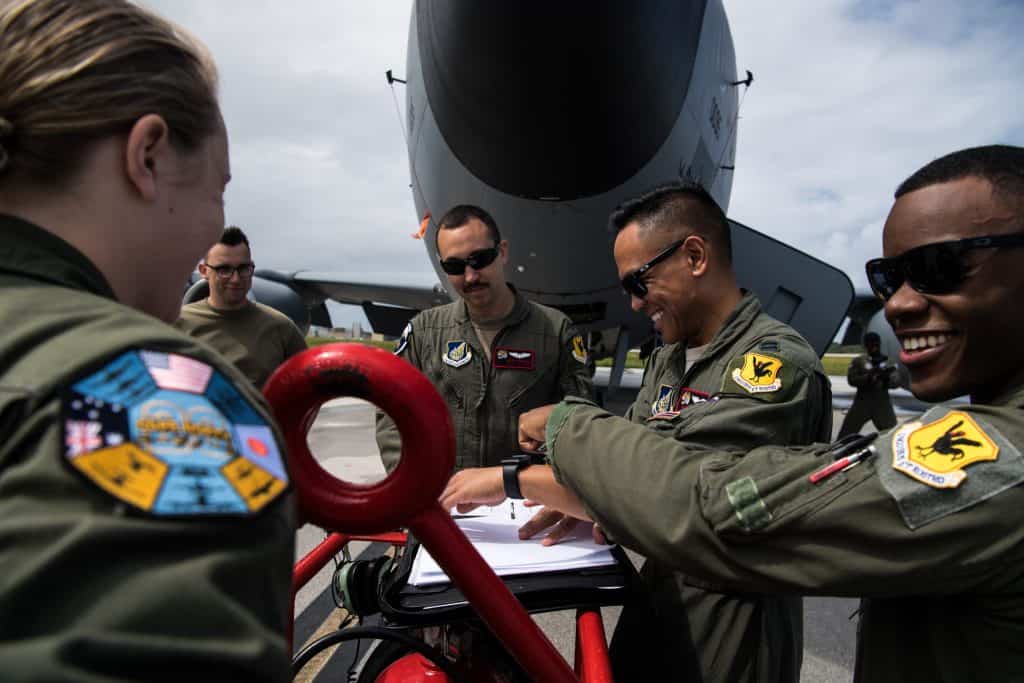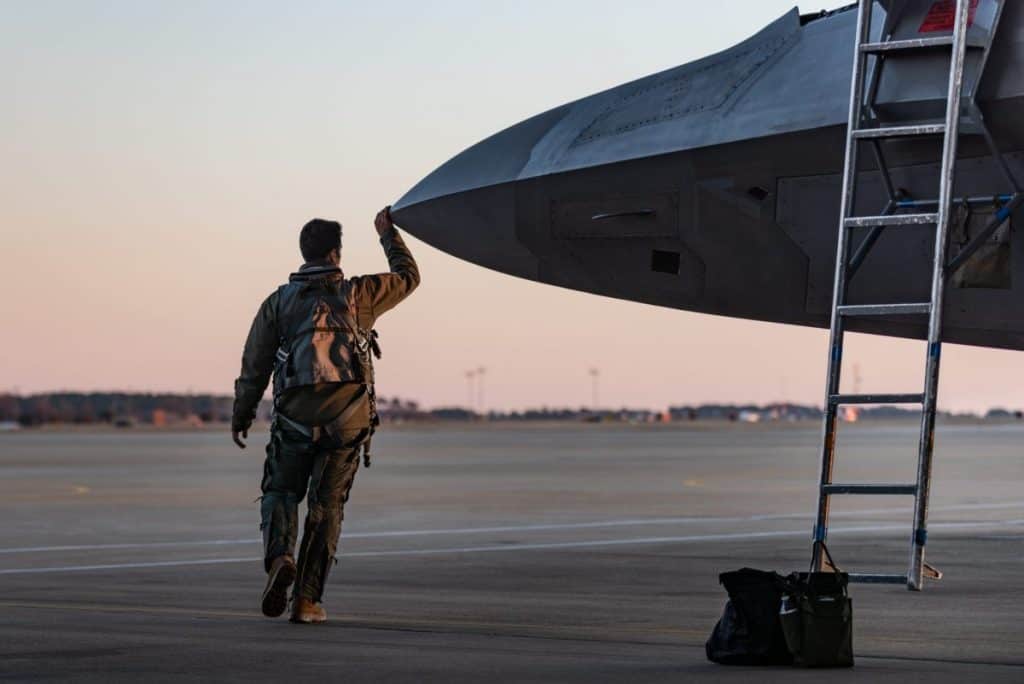The Ultimate Guide to Earning a Pilot Slot in Air Force ROTC, Part 1

Part 1: Air Force Reserve Officers’ Training Corps (AFROTC)
Table of Contents
- What is AFROTC?
- How to Join and Requirements
- Scholarship Opportunities
- Cadet Life – Year 1
- Cadet Life – Year 2
- Cadet Life – Year 3
- Cadet Life – Year 4
- Cadet Ranking
- What are your Chances?
- AFSC Selection
- Decision Time
- My AFROTC Experience and Advice
What is AFROTC?
There are various ways to break into the world of United States Air Force aviation and one of those ways is through the Air Force Reserve Officers’ Training Corps (AFROTC). You may have heard the term ROTC before, but this article will break into what ROTC is, provide context, personal experience, and advice.
There are three different ways to become a commissioned officer in the United States Air Force: Service Academies, AFROTC, and OTS. AFROTC is unique in that you are a regular student on a college campus; you just also happen to be training to become an Officer. AFROTC offers various lengths of the program to earn your commission with the most common being four years; you participate each year throughout your college career. You can also join AFROTC as an “AS 250” where you join the program in your second year of college, after transferring from a community college, or when you have at least three years remaining of school. There are programs available for Active Duty Enlisted members to join AFROTC as well, but I recommend reaching out to your desired ROTC detachment for details.
Over 1,100 universities in the country offer an AFROTC program, although not every campus physically has an AFROTC detachment. The detachment is the physical location and “Cadet Wing” where your training will occur. If your college or university does not have an AFROTC detachment, you can participate in the program as a “cross town” student. This means you attend the college or university of your choice and do your AFROTC training at the host university with the AFROTC detachment. This might mean that you will have to travel anywhere from a couple of minutes to a couple of hours each week to the AFROTC detachment to participate in the program. You can search for local detachments and schools with cross town agreements at here.
How to Join and Requirements
There is not an application to fill out and you do not have to be “selected” to join AFROTC. In my experience, simply enrolling in the necessary AFROTC courses at your university enrolls you in the program. I recommend reaching out to the AFROTC detachment you are interested in for more specific details on how to join your desired detachment. Every detachment has a recruiting officer who would be more than willing to speak with you and explain your options. Joining or inquiring about AFROTC does NOT mean you are committed to serving in the Air Force. Everyone is qualified to at least try it out and you can major in whatever you would like. Ideally, you would enroll in AFROTC your freshman year of college or the Fall semester of your sophomore year of college. To be a in AFROTC you must be a full-time student and have at least 3 years remaining until graduation. Most people assume that if you are doing a ROTC program, your education is being paid for, you are required to serve after you graduate, and you are a STEM major; but this is not always true. There are some great AFROTC scholarship opportunities, but it is NOT necessary to be on scholarship to participate in AFROTC.
Scholarship Opportunities
AFROTC does offer various “types” of scholarships to selected cadets. As a high school student, you can apply to the High School Scholarship Program (HSSP) generally between June and early January of your senior year of high school. If awarded a scholarship, it may be a Type 1, Type 2, or Type 7.
Essentially, a Type 1 scholarship will cover all tuition and fees at any private or public university with an AFROTC detachment. A Type 2 will provide up to $18,000 per year toward tuition and fees at any private or public university with an AFROTC detachment. A Type 7 will pay 100% of tuition and fees at a public university at the in-state tuition rate. The Type 7 can be converted to a three-year Type 2 scholarship to be used out of state or at a private university as well.
Every AFROTC HSSP Cadet, regardless of type, will receive a monthly stipend and book stipend once a semester. The HSSP is generally very competitive and will require high ACT/SAT scores as AFROTC is given a limited amount of scholarships to award each year. Click here for more information on requirements and how to apply to the HSSP.
As a current college student/AFROTC Cadet you can be selected for the In-College Scholarship Program (ICSP). The ICSP is very competitive among current Cadets and will require you to stand out in your first year of AFROTC. You do not personally apply for this program, your AFROTC Cadre will put you up for it if you qualify. Speak to your cadre about these requirements. More recently there have been limited ICSP scholarship awardees. If selected by this program, it is possible to receive a Type 2 Nursing Scholarship or a Type 1 Commanders’ Scholarship. Further details are available here.
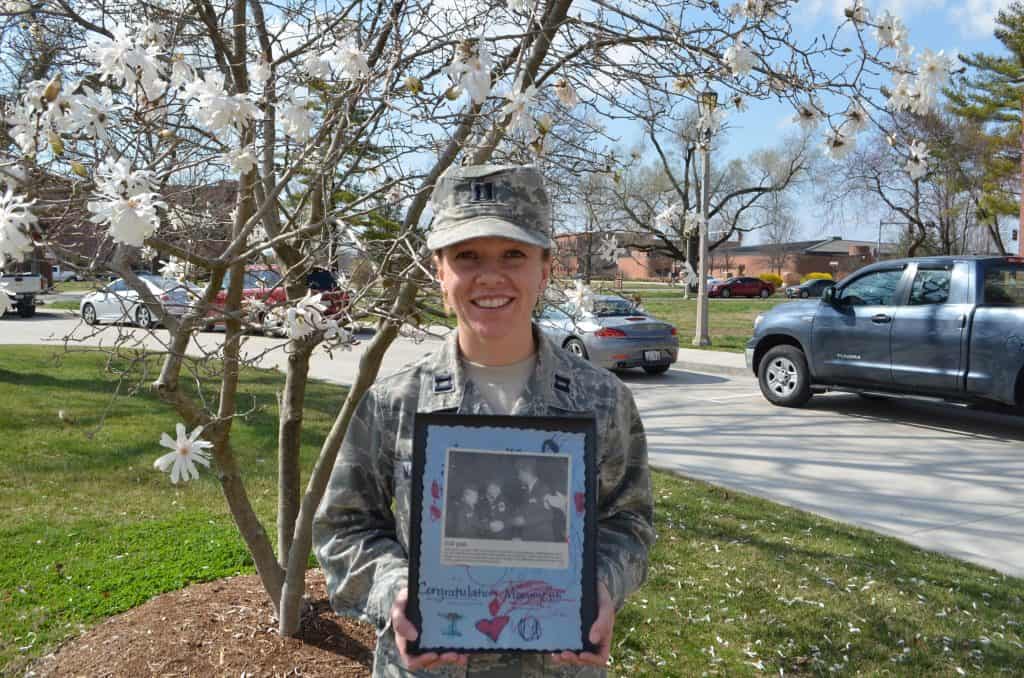
Lastly, as a current Enlisted member it is possible to receive an AFROTC scholarship via the ASCP and SOAR programs. It is important to note that if you are on scholarship, you must sign a service commitment and serve at least 4 years following your college graduation. If you are not on scholarship, you will contract with AFROTC after Field Training and will be committed to serving at that point. If you are Enlisted in a guard or reserve component while you are in college and participating in AFROTC, you will not contract with ROTC until just before commissioning. Contact your local AFROTC detachment for more details on this process.
Cadet Life – Year 1
In AFROTC you are not officially in the Air Force, you aren’t an Active Duty Enlisted member or an Officer, your “title” is Cadet. In your first semester of AFROTC you will be referred to as an AS100 or an AS250. AS100 Cadets are those who join AFROTC as a freshman/first year college student with the intention of completing at least 4 years of the AFROTC program. AS250 Cadets are those who join AFROTC in their sophomore year or will be completing the more accelerated 3-year AFROTC program. All underclassmen or those who have not yet attended Field Training are called General Military Course (GMC) Cadets.
In your first year of AFROTC you will be taught everything you need to know to succeed in the program. For every year in the program you will attend a classroom course, a Leadership Laboratory (LLAB), and Physical Training (PT) every week; GMC Cadets are required to participate in 5 hours of AFROTC each week. During PT and LLAB you will be required to wear USAF uniforms. Some detachments require Cadets to wear their uniforms to their classroom course as well, however this is detachment dependent. So, you can expect to wear the uniform for a full day (7am-7pm) once a week and during PT.
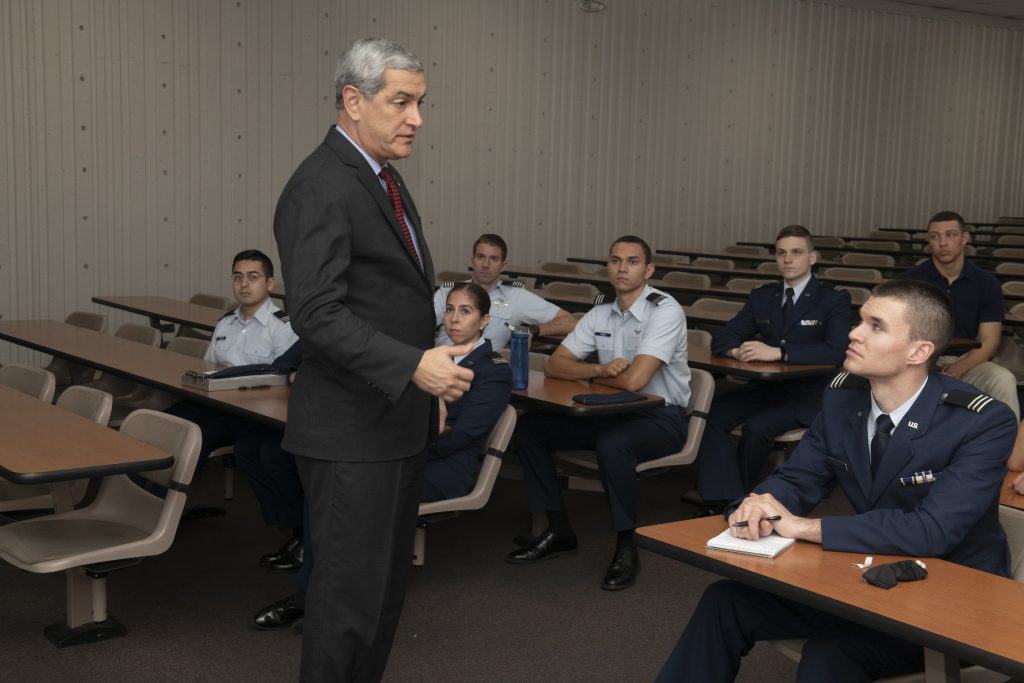
The classroom course will correspond to your AS level, and you will take the AS100 course in your first year. If you are an AS250, you will take the AS100 and AS200 course concurrently. These classes are mandatory to commission. The curriculum has changed in the AS100 course since I took it, but you can expect to learn about Air Force customs and courtesies as well as Air Force amenities and what an Air Force base has to offer. The AS 100 and 200 class usually meet once a week, but this is detachment dependent.
Leadership Laboratory (Lead Lab or LLAB) is where you will learn and hone your leadership skills and where they will be put to the test. Every detachment goes about LLAB differently, but you can generally expect to do a lot of marching as a GMC. You do not need any sort of basis in marching when you join the program, you will learn it all over your GMC years.
You are typically required to attend a minimum of two PT sessions each week. These are generally offered early in the morning before classes begin and aim to get you in shape for the Physical Fitness Assessment (PFA). Each semester of AFROTC, including your first semester, you will be required to take a PFA. Scholarship/contracted Cadets must pass the PFA, while it is not required that uncontracted Cadets pass the PFA, though still highly recommended. The PFA is comprised of one minute of push-ups, one minute of sit-ups, a 1.5-mile run, and a waist measurement. A minimum score of a 75 is required to pass the PFA, however, you also must pass each individual category. Scoring for the PFA can be found here.
While the AS class, LLAB, and PT are the only required items for AFROTC, there are a variety of other AFROTC activities you might be required to attend each week as well. Again, these are detachment dependent. You may be required to participate in Flag Details, where you raise and lower the American Flag, Flight meetings, Squadron meetings, marching practice, extra PT, or extracurricular activities associated with AFROTC. Something important to keep in mind is that you must take time each week to care for your uniforms between shining shoes, ironing, dry cleaning, and perfectly placing your ranks and nametags.
In AFROTC there is a Cadet Wing, which is the organizational structure of the detachment. Every detachment runs its Cadet Wing differently, although you will receive equivalent training no matter what detachment you attend. The Cadet Wing(s) will be comprised of groups, squadrons, and flights. As a new GMC, you will likely be placed in a flight, which will be the group of Cadets that you work with throughout the semester and, more specifically, at LLAB. Multiple flights make up a squadron, multiple squadrons make up a group, and multiple groups create a wing. Some flights may hold weekly meetings for you to attend to keep up to date on the schedule, communication, and anything that needs to be done and it is highly recommended that you attend these meetings. Your flight will likely be led by an upperclassman. All upperclassmen will have a “job” in the detachment. As a new GMC, your “job” is to learn how to be a Cadet.
There are a few big milestones and hurdles throughout AFROTC, and the first one is passing DoDMERB. DoDMERB is the medical examination/physical you must pass to be qualified to contract with a scholarship, to attend Field Training and to commission. The process to having a qualified DoDMERB physical can take a long time. I recommend beginning this process as early as your AFROTC Cadre will allow you to, so you have as much time as possible to attain medical waivers if necessary. In my experience, I was able to get the DoDMERB physical completed and two weeks later I was qualified, which is not the norm. I had some friends begin around the same time I did and were not qualified for over a year. Take this process seriously and complete it ASAP.
Cadet Life – Year 2
In between your freshman and sophomore year, you may be required to attend a Professional Development Training (PDT). PDTs can range from a few hours to a few weeks in length. There are a variety of exciting PDTs to attend from Operation Air Force (Ops AF) to Air Force Academy Freefall. The purpose of these PDTs is to get you better acquainted with the Air Force.
In your second year of AFROTC you will be an AS200. You will take the AS200 course and attend LLAB and PT just as you did in your AS100 year. Each detachment handles the AS200 year differently as it is the year which precedes AFROTC Field Training. Field Training is a 13-day training and evaluation evolution conducted at Maxwell AFB, Alabama. It is commonly thought of as “the basic training” of AFROTC.
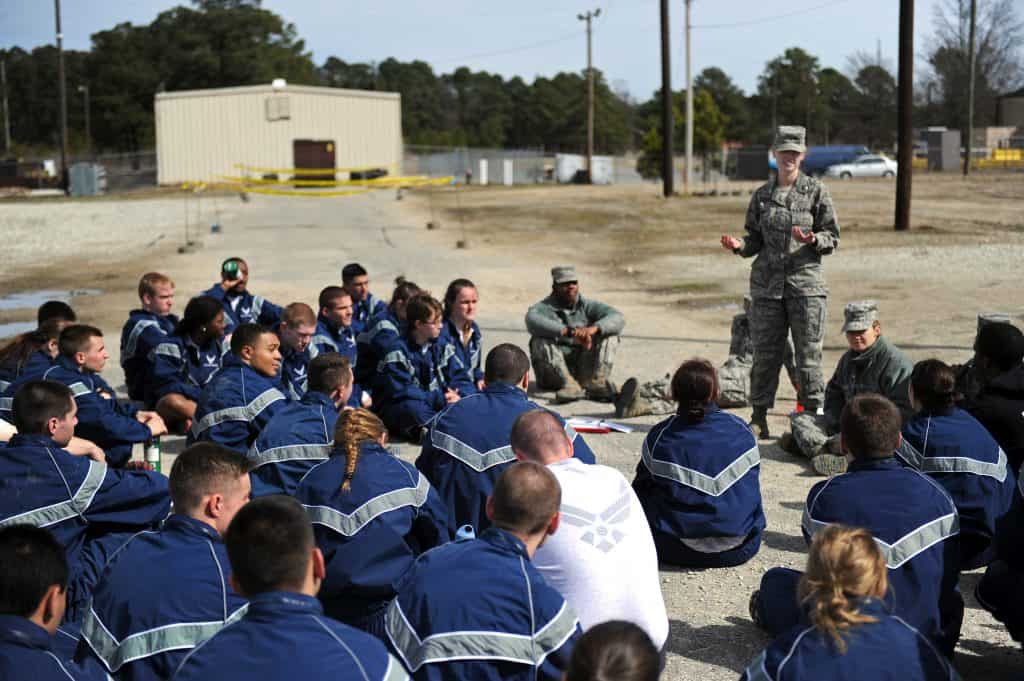
In preparation for Field Training, Cadets participate in Field Training Preparation (FTP). Some detachments utilize the entirety of the AS200 year for FTP, while some only use the spring semester of the AS200 year. By the time you are an AS200 you will generally be expected to understand how to be a functional Cadet, how to march, and you may even be expected to lead in some respects. Begin your AS200 year with confidence that you know how AFROTC works but understanding that you still have much to learn before Field Training. You will continue learning how to be a dynamic follower but will begin exploring what it means to be a leader. You must get through a few milestones before progressing in the program.
The Fall semester of your AS200 year is when you usually take the Air Force Officer Qualifying Test (AFOQT). To qualify to be an Officer, you must pass the AFOQT. You have two opportunities to pass the AFOQT, although you must wait 90 days between each AFOQT attempt. It is possible to receive a waiver to attempt the AFOQT a third time, but do not rely on this. BogiDope has written a series of articles on the AFOQT, I recommend checking them out for details. In AFROTC usually your score is not extremely important, you just need to pass; however, if you would like to compete for a Rated (pilot) slot, that is a different story. I HIGHLY recommend studying for the AFOQT and taking it seriously as you must not only pass it, but you will need competitive scores throughout.
Next, you must earn a “slot” to Field Training. You must attend and graduate Field Training to be eligible to move on in the AFROTC program and commission, but not everyone is “invited” to attend Field Training, regardless of being contracted or on scholarship. You must earn an Enrollment Allocation (EA) for Field Training, usually in the spring semester of your AS200 year. This is done on a national level and is sort of out of your control. What you can do to give yourself the best chance of attending Field Training is to actively participate in AFROTC and have a great attitude, keep your grades up and your GPA high, and workout to earn a high PFA score. All of these things go into earning an EA. Every year the percentage of Cadets selected for Field Training/awarded an EA fluctuates.
Once you earn an EA, you must attend Field Training. Cadets from all over the country will arrive to Maxwell AFB during the summer after their AS200/250/500 year to experience Field Training. You will be tested on your leadership capabilities, ability to operate under pressure, attention to detail, physical fitness, wingmanship, and more. Field Training can be stressful, but it is absolutely not something to worry about. You will be prepared. In the course of about two weeks your flight will go from complete strangers from all corners of the country to a bonded family who got through the experience together.
Cadet Life – Year 3
In your third year of AFROTC you will be either an AS300 or an AS500. An AS300 is a traditional Cadet in their third year of the AFROTC program who just completed Field Training. Those who return from Field training and progress in the program become Professional Officer Course (POC) Cadets. If you are not on scholarship or contracted prior to Field Training, you will contract with the Air Force at this time and be obligated to serve at least 4 years. An AS500 is a Cadet in their third year of AFROTC who did not attend Field Training, is not medically qualified, did not earn an EA, or did not make the grades the semester before Field Training. AS500 Cadets usually remain in the GMC Corps and participate as underclassmen. The majority of third year Cadets will be AS300s.
The transition from GMC to POC changes your responsibilities. As a GMC your main job is to learn how to be a follower, how AFROTC works, and just absorb as much information as you can. As a POC, you mold into a leader. POCs have “jobs” in the detachment. For example, you may be a Flight Commander, in charge of training, developing, and leading 20+ Cadets. You might be a Physical Fitness Officer in charge of PT for the whole Cadet Wing. Or you might be a Public Affairs Officer in charge of taking pictures of detachment events and managing the detachment social media. Depending on the size of your Cadet Wing, you may have a more dynamic leadership role, or one where you do not lead younger Cadets as much. What is common across all detachments is that you will be spending a lot more time in AFROTC.
As a POC you are required to participate in AFROTC at least 8 hours a week. Your AS300 course will be 3 credit hours and you will meet more times a week. This might mean you will be in uniform more times throughout the week also.
The AS300 year is usually a lot of fun as you become a leader and a mentor. As a GMC you look up to POCs and you usually think they have it easier and have more freedom. Do not be fooled by this illusion, however. Sure, POCs may not have to march as much or maybe they are in charge of the uniform inspections, but they also have to maintain their uniforms just like GMCs, set the example for GMCs, do their POC job, attend more hours of AFROTC, and still keep a high GPA. In practice, POCs do a lot more than 8 hours of AFROTC a week. The AS300 year is also exciting for Air Force Specialty Code (AFSC) selection, more on this later.
Cadet Life – Year 4
Year 4. You finally made it. At this point you might be tired of the 5am wake ups and exhausted from the countless sleepless nights trying to plan an AFROTC event, while you have three midterms the same week. You can finally see the light at the end of the tunnel, commissioning is just two semesters away.
Between your AS300 and AS400 years, you may be required to complete one last PDT. As an AS400, you are the oldest and most AFROTC experienced. Your job is to teach the AS300s how to lead the detachment. You begin to lead leaders. POCs effectively keep the whole detachment running. They oversee all of the training evolutions and AFROTC events. As an AS400 you will likely have a more dynamic leadership role. These jobs usually include Cadet Wing Commander, Operations Group Commander, or Mission Support Group Commander. Essentially, you are a top dog in charge of a lot of Cadets below you. You still must attend the AS400 course, LLAB, and PT.
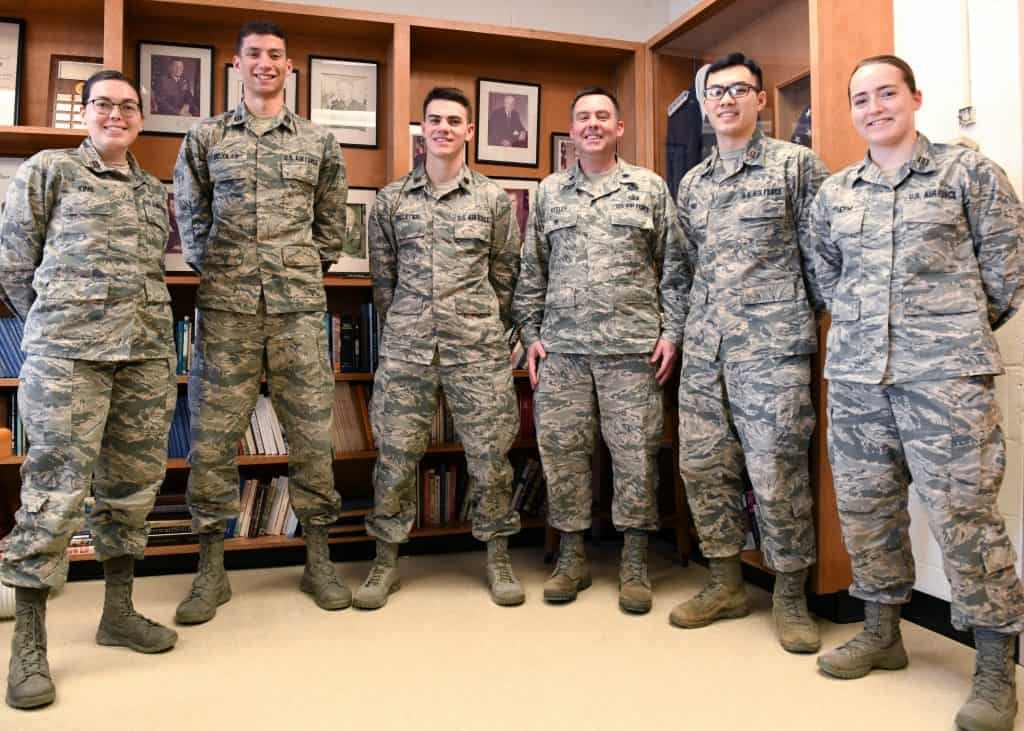
At this point in your Cadet career I highly suggest taking a step back and evaluating your leadership skills. You may feel like you are over AFROTC and already completely developed as a leader, but do not lose sight of the fact that there is always room for improvement and there are always things to learn. In AFROTC you have the amazing opportunity of having a Colonel just down the hallway always available to talk with you and provide mentorship. It might seem intimidating but take every opportunity you can to learn from these leaders.
There are a few exciting milestones throughout the AS400 year, with those being AFSC Selection results, Air Force Base assignments, and finally commissioning. From Air Force ROTC, you will be commissioned into the Inactive Ready Reserve and will not Enter Active Duty (EAD) until a specified date (usually, you will find out what this date is in your AS400 year). When you EAD, you will begin your service commitment and career! This slightly differs from the Air Force Academy or OTS in that once they commission. They begin their career immediately. With AFROTC, you may have to wait a few months up to a year before you begin. It is important to note that from AFROTC, you will serve on Active Duty (AD); however, more recently, AFROTC has begun to commission some cadets into the Air National Guard (ANG) and Air Force Reserve (AFR). More on that in Part 2.
Cadet Ranking
Like having a GPA in school, your Commander’s Ranking will be like your Cadet GPA. You will be rack and stacked by your detachment Commander among all the other Cadets in your AFROTC detachment. Most commanders will not disclose this information to you or anyone else, but once you are in the program, you will likely be able to gauge where you stand. The Commander’s Ranking is out of your hands, but it becomes extremely important. To be selected for the coveted PDT you want to attend, an EA, and your dream AFSC, your Commander’s Ranking will be involved.
You will be competing against Cadets nationwide for all of these things and every cadet will be ranked by their Commander. Some detachments have more Cadets than others, so think of your rank expressed in thirds rather than a specific number. For example, being ranked number 5/50 in your detachment is equivalent with someone else ranking 18/180. You will often hear Cadets refer to ranking as top third, middle third, or bottom third. Always strive to be in the top third.
While you do not have any direct control over your ranking, you can control your attitude, how much effort you put in, your professionalism, and your physical fitness. It might not seem like it, but your Commander will hear about everything you do and will take ranking advice from those who work closest with you. My biggest advice to earn a top third Commander’s Ranking is to always put in 100% effort when you are at an AFROTC event, maintain a positive attitude, always be professional in AFROTC situations, and work out outside of AFROTC to earn high PFA scores.
What are your Chances?
AFROTC is a long four years. Many things change and different opportunities arise. For example, when I started AFROTC I began with about 55 Cadets. I commissioned alongside 6 of those people. Cadets ebb and flow. Some join later in the program, some take longer to finish their degree and take an extra year, but most do not make it through the program. AFROTC is not hard, but it is time consuming and you have to want it to make it through. Keep in mind that this is just one class of Cadets from just one detachment, other classes and other detachments may have much higher retention rates.
In terms of earning a scholarship, every year the amount of scholarships offered changes, but the stats to earn one usually stay consistent. For example, in FY18 for the HSSP, 5,581 applications were submitted, 2,851 of which were eligible, 2,789 received interviews, and 2,279 were offered scholarships. The averages were 12% Type 1, 19% Type 2, and 69% Type 7 with an average SAT score of 1350, ACT of 30, 3.71 GPA, and 73% of selectees were STEM majors. When my class went up for ICSP in my freshman year, 9 of us were submitted, 5 of us were offered scholarships, and we all had a 3.5 or above, and were STEM majors. Two years after my class, about 15 were submitted and just 2 were awarded scholarships. It is hard to put an average with ICSP results, but if you earn a high GPA your first semester, make it through DoDMERB, and work hard in AFROTC, your chances will be high.
Field Training EAs awarded also fluctuate each year. In 2019, there was a selection rate of 91.6% with an average CGPA of 3.251 and PFA of 95.03, and in 2018, there was an 88.8% selection rate with selects having an average CGPA of 3.24 and PFA of 94.71. A few years earlier, in 2015, there was an 85.8% selection rate with an average CGPA of 3.305 and PFA of 96.55.
If you want to be a pilot or any kind of flier, Rated AFSC selections might be the most exciting and nerve-wracking part of AFROTC for you. The Rated board for FY19 commissionees had 932 applicants with 762 selectees, this was a much higher selection than previous years. The average CGPA was 3.22, PFA was 96.04, PCSM was 47.5, AFOQT CSO was 66.6, and AFOQT ABM was 62. Breaking it down further, there were 466 pilot selects with an average CGPA of 3.35, 97.30 PFA, and 60.2 PCSM. Like scholarships, every year AFROTC is given a different number of slots they can award to cadets. To show the disparity in pilot slots per year, the FY16 Board had 965 applicants, with 694 total Rated selects and 345 of those being pilot. The pilot selects had an average of a 3.422 CGPA, 97.80 PFA, and 66.3 PCSM.
AFSC Selection
Typically, during your AS300 (Junior) year of AFROTC you will put in Non-Rated AFSC (Air Force Specialty Code, aka job title) preferences in the Fall semester and find out what AFSC you will be serving as in the Fall of your AS400 (Senior) year. It is not guaranteed that you will get your top choice of AFSC and you may be required to serve you commitment in an AFSC that was not on your “dream sheet.” Non-Rated jobs are essentially everything that does not put you in an airplane or in control of an airplane.
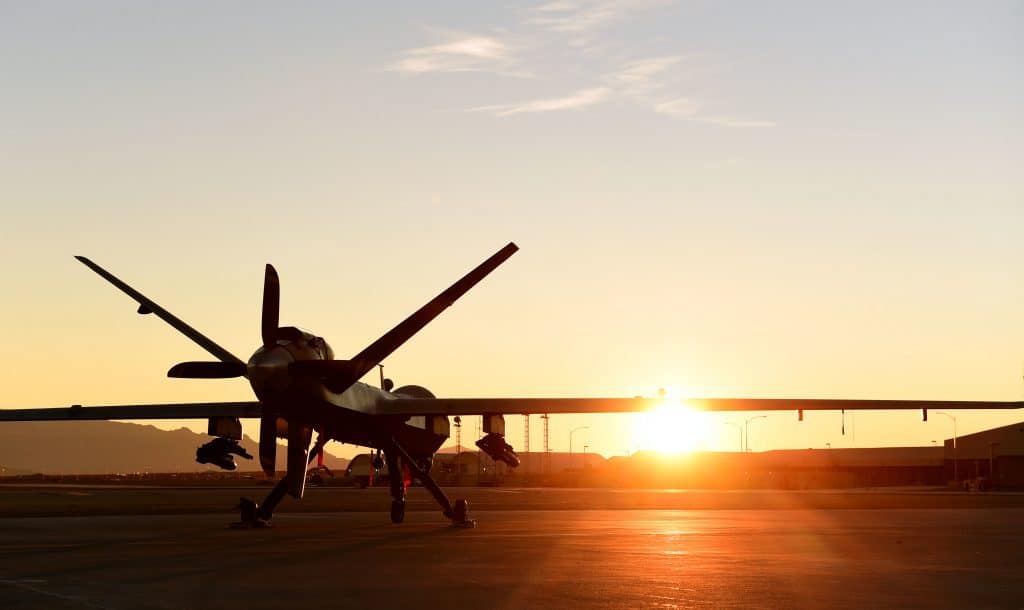
There are four Rated career fields, those being Pilot, Remotely Piloted Aircraft Pilot (RPA), Combat Systems Officer (CSO), and Air Battle Manager (ABM). Rated career fields also come with longer service commitments. Selection for these four career fields is separate from the “AFSC dream sheet” you will submit in your AS300 year. Regardless of interest in the Rated career fields, everyone will have to submit for Non-Rated AFSCs. The process of earning a Rated slot, more specifically, a pilot slot in AFROTC will be outlined in Part 2 of this article series.
Decision Time
As discussed previously, you may be given an AFSC that you did not have on your dream sheet. You will have to serve in this Air Force with this AFSC until you can cross train or until your service commitment is complete. In AFROTC, you contract either when you accept a scholarship or after Field Training. Once you are contracted, you must serve at least 4 years following commissioning, in a Non-Rated AFSC. If awarded a Rated slot your commitment will become either 6 or 10 years. There are situations where you may be able to “get out of” your service obligation before commissioning by paying your scholarship back or enlisting into the Air Force. You sign an obligation to the Air Force before you find out what AFSC you will be serving in. This is one reason why it is important to be passionate about serving and not just being a pilot if you participate in AFROTC.
My AFROTC Experience and Advice
I recently graduated with an undergraduate degree and commissioned from AFROTC. Enrolling in AFROTC was hands down one of the best decisions I have made, but that does not mean it was easy. As a STEM major and Cadet extremely involved with the AFROTC program, there is not a whole lot of free time. While you are only required to participate in 5 hours of AFROTC each week as a GMC and 8 hours each week as a POC, in practice it is usually a lot more than that. Again, it is all preference, you get out of AFROTC what you put into it. If you want to earn a pilot slot, you are probably going to need to put more time into the program (discussed in the next article).
As a high school student, I always knew I wanted to serve, but I did not know how I was going to go about it. I did not come from a military family and was not really exposed to aviation other than commercial flights. I found myself at an airshow by accident one day, and that was it, I knew I was joining the Air Force and that I was going to fly.
I came across AFROTC in my senior year of high school and noticed there was a deadline to apply for the AFROTC HSSP, but I did not end up applying because I was too nervous to tell my parents that I wanted to join AFROTC. In hindsight, this was dumb, and I should have just told them earlier and applied. Anyway, I eventually told my parents, visited the detachment at the university I was slated to attend the following fall, and enrolled in AFROTC.
Starting the program, I did not know what to expect, the best advice I have for anyone in this situation is to put yourself out there, be respectful, and be a sponge: learn. AFROTC will teach you everything you need to know, and you will do well in the program if you put 100% effort into every AFROTC event you attend.
I was a traditional four-year Cadet and earned a scholarship via the ICSP after my first semester in the program. AFROTC afforded me some amazing experiences throughout my collegiate career such as Ops AF where I spent three weeks at an Air Force Base shadowing almost every different career field the Air Force. The program did not limit me from being a regular college student and participating in other clubs or events either. I was able to take a semester off from AFROTC to study abroad in Europe and it did not impact my scholarship or standing in AFROTC. I met some of my best friends in the program and experienced some of the most exciting days of my life in the program; I will never forget how I felt when I was told I got selected for pilot training.
Amazing experiences and opportunities aside, I would be lying if I said it was easy and I didn’t dread some of the 5am wake ups for PT. The program can be draining if you do not set time aside for yourself. It is easy to get caught up doing something for AFROTC and forget about some homework you might have due the next day. School is extremely important. You have to keep your grades up to remain in the program and you have to graduate to be able to commission.
Some days will feel like all you do is school and AFROTC, but you just have to take one day at a time and know that it will be worth it in the end. I spent countless days in my AFROTC detachment, basically living there in between classes. At the time I just wanted a break but looking back I made some of the best memories with my fellow Cadets during those days.
Always have a positive attitude. It will be hard, but try. In my experience, one Cadet with a negative attitude could bring a whole flight down and make the program feel miserable. Work hard, help out your wingmen, take some time for yourself, and be positive. It might feel like forever (some days will feel like weeks and some weeks will feel like years), but semesters will feel like minutes and before you know it you will be taking the Oath of Office and commissioning as a Second Lieutenant. Every early wake up for PT, late night shining your shoes, and hour spent perfecting memorandums will pay off when you commission and await your future career.
If you are interested in learning more about Cadet life, getting advice, and hearing from current and former AFROTC Cadets, check out r/AFROTC on Reddit.
Image Credits:
This post’s feature image is from: https://www.dvidshub.net/image/4862528/af-rotc-det-175.
AFROTC Field Training: https://www.dvidshub.net/image/1174711/leaders-tomorrow-train-hard-today.
Capt McLean, the ASCP scholarship winner: https://www.dvidshub.net/image/560610/scott-member-uses-airman-scholarship-and-commissioning-program.
AFROTC LLAB: https://www.dvidshub.net/image/6048443/dpaa-outreach-afrotc-cadets-unlv.
Cadet Officers: https://www.dvidshub.net/image/5140051/104th-fighter-wing-officer-teaches-air-force-rotc-cadets.
MQ-9 Reaper at sunrise: https://www.dvidshub.net/image/6007937/mq-9-reaper.






